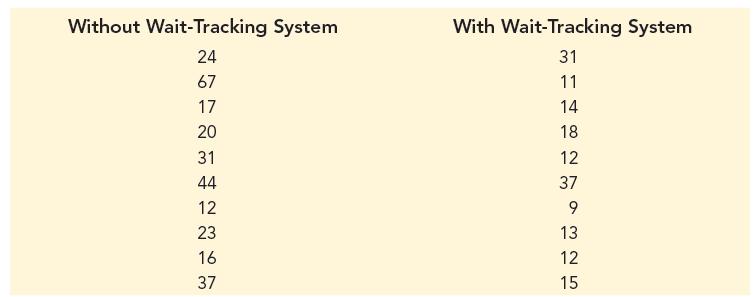Suppose that the average waiting time for a patient at a physicians office is just over 29
Question:
Suppose that the average waiting time for a patient at a physician’s office is just over 29 minutes. To address the issue of long patient wait times, some physicians’ offices are using wait-tracking systems to notify patients of expected wait times. Patients can adjust their arrival times based on this information and spend less time in waiting rooms. The following data show wait times (in minutes) for a sample of patients at offices that do not have a wait-tracking system and wait times for a sample of patients at offices with such systems.
a. What are the mean and median patient wait times for offices with a wait-tracking system? What are the mean and median patient wait times for offices without a wait-tracking system?
b. What are the variance and standard deviation of patient wait times for offices with a wait-tracking system? What are the variance and standard deviation of patient wait times for visits to offices without a wait-tracking system?
c. Create a boxplot for patient wait times for offices without a wait-tracking system.
d. Create a boxplot for patient wait times for offices with a wait-tracking system.
e. Do offices with a wait-tracking system have shorter patient wait times than offices without a wait-tracking system? Explain.
Step by Step Answer:

Business Analytics
ISBN: 9780357902219
5th Edition
Authors: Jeffrey D. Camm, James J. Cochran, Michael J. Fry, Jeffrey W. Ohlmann





